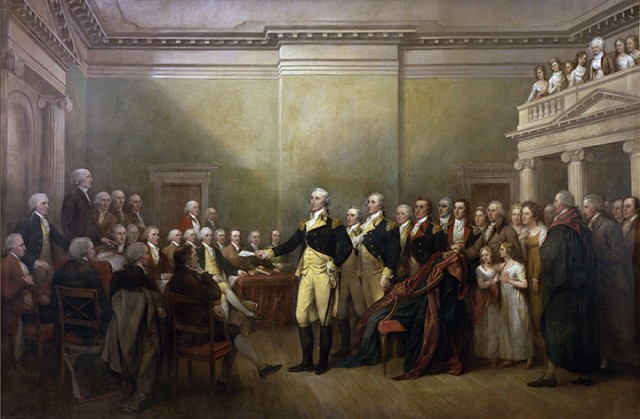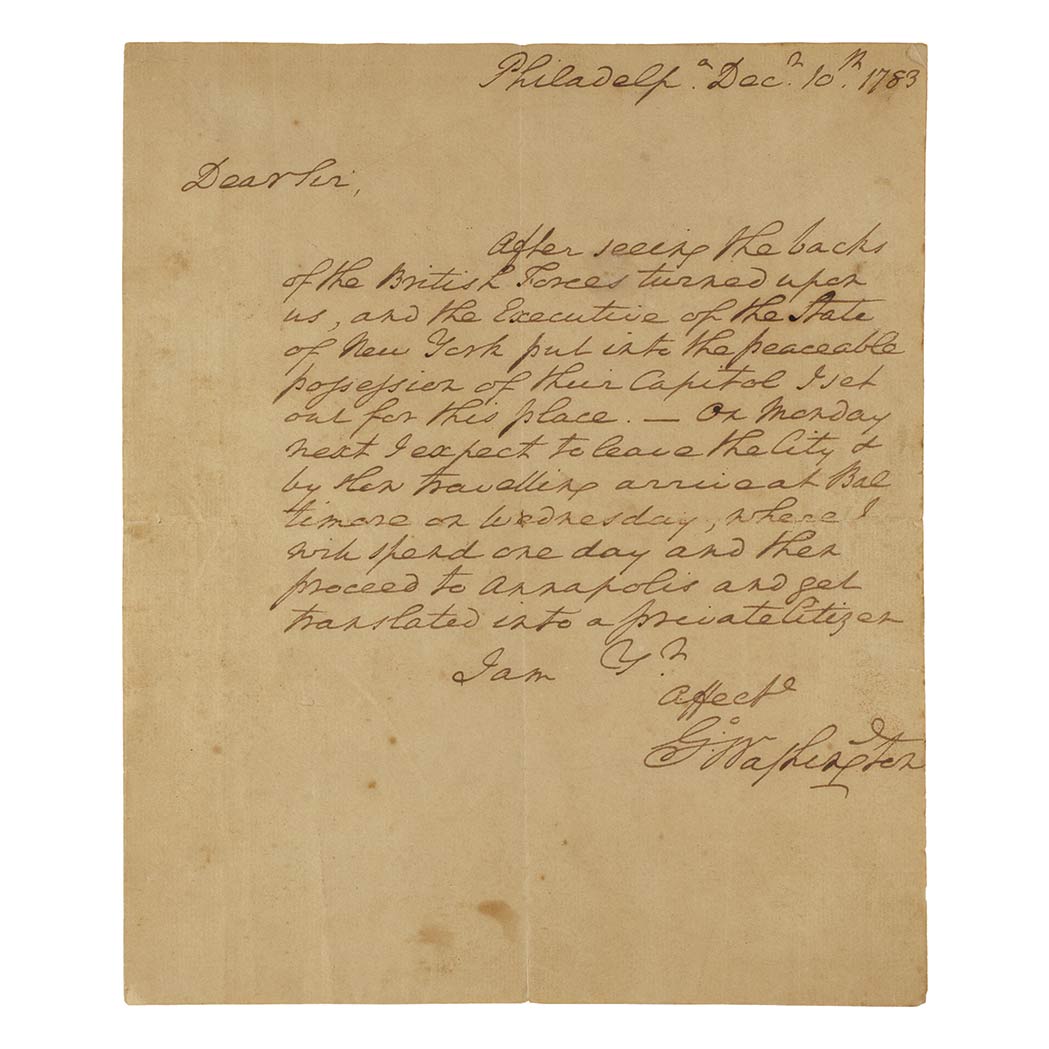Declaration of Independence
07/06/2017 Books & Autographs

From the opening line of the Declaration of Independence – "When in the Course of human events it becomes necessary for one people to dissolve the political bands which have connected them with another" – we know there was no turning back. The wording itself was definitive. After July 4, 1776, to be American began to mean something much different than in the preceding Colonial era. But the true definition of American freedom would take years to evolve, after all an entire war had to be fought and won. Thus it is instructive to reconsider a line from a November 1783 letter from then General George Washington to his close confidant James McHenry, rediscovered and sold at Doyle in one of our Rare Books & Manuscripts auctions.
The letter was known and published – it had garnered the highest price of $21 in an 1859 fundraiser auction of a selection of McHenry's papers sold to benefit a Maryland institute for the blind. The letter was purchased by railroad magnate William T. Walters and subsequently descended in his family, retained even as a series of landmark auctions of Americana owned by the family were held in the 1920s dispersing the collection (including the sale of Francis Scott Key’s original manuscript of Star Spangled Banner to the state of Maryland) and the creation of the Walters Art Museum. The letter was discovered by a Doyle appraiser in a paper envelope marked "George Washington" in pencil in an old hand, inserted between two framed certificates on the upper shelf of a closet. All were stunned when the letter was revealed.
The short letter, written as Washington planned to depart New York for Philadelphia, then travel on to Baltimore, and finally Annapolis. This journey turned out to be a crowd inducing, tear-infused victory and retirement tour for one of the greatest Generals the world had ever seen. Against all odds in 1776, in the 1783 letter Washington reported having "seen the backs of the British forces turned upon us" and confirms having restored the city of New York to the “peaceable possession” of its state governor. But Washington, doesn't use the word retire. He tells McHenry that once he reaches Annapolis he will “get translated into a private citizen."
After the Declaration of Independence, eight years of War, and countless nights away from home what exactly was this new private citizen? What did it mean to be translated?
This is perhaps Washington's greatest contribution in a life dominated by contributions to the infant nation – he simply planned to retire from public service and return to Mount Vernon. True power was within his grasp and unlike most 18th century powerful military figures, he resisted rendering himself commander for life, dictator, emperor or – heaven forbid – King of the new land. No, Washington earned the opportunity to be "translated," a phrase in the 18th century used to describe a powerful religious transformation, a phrase describing transcendence. Washington’s private citizen was completely new – he would be free to choose his own path, would be brave in the face of adversity, would not put power ahead of citizenship, and would never be subjugated again.
Washington would put forth these principles again as President. He supported the Constitution’s four year term for the executive, and, as he and Martha Washington had no children, he left no sons to form a potentially manipulative political dynasty.
Needless to say, a trail of devotees followed Washington from New York to Annapolis. His retirement address to Congress has survived, and in the short, poignant address he stated:
“Having now finished the work assigned to me, I retire from the great theatre of Action; and bidding an Affectionate farewell to this August body under whose orders I have so long acted, I here offer my Commission, and take my leave of all the employments of public life.”
George Washington did take his leave but from the letter to McHenry we know that it was more than this – he, and all Americans, had been translated into something completely new, completely free. As we celebrate the July 4th holiday, this resolve should be remembered – not just the declaration of independence – but the elevation of the meaning and spirit of the term.
